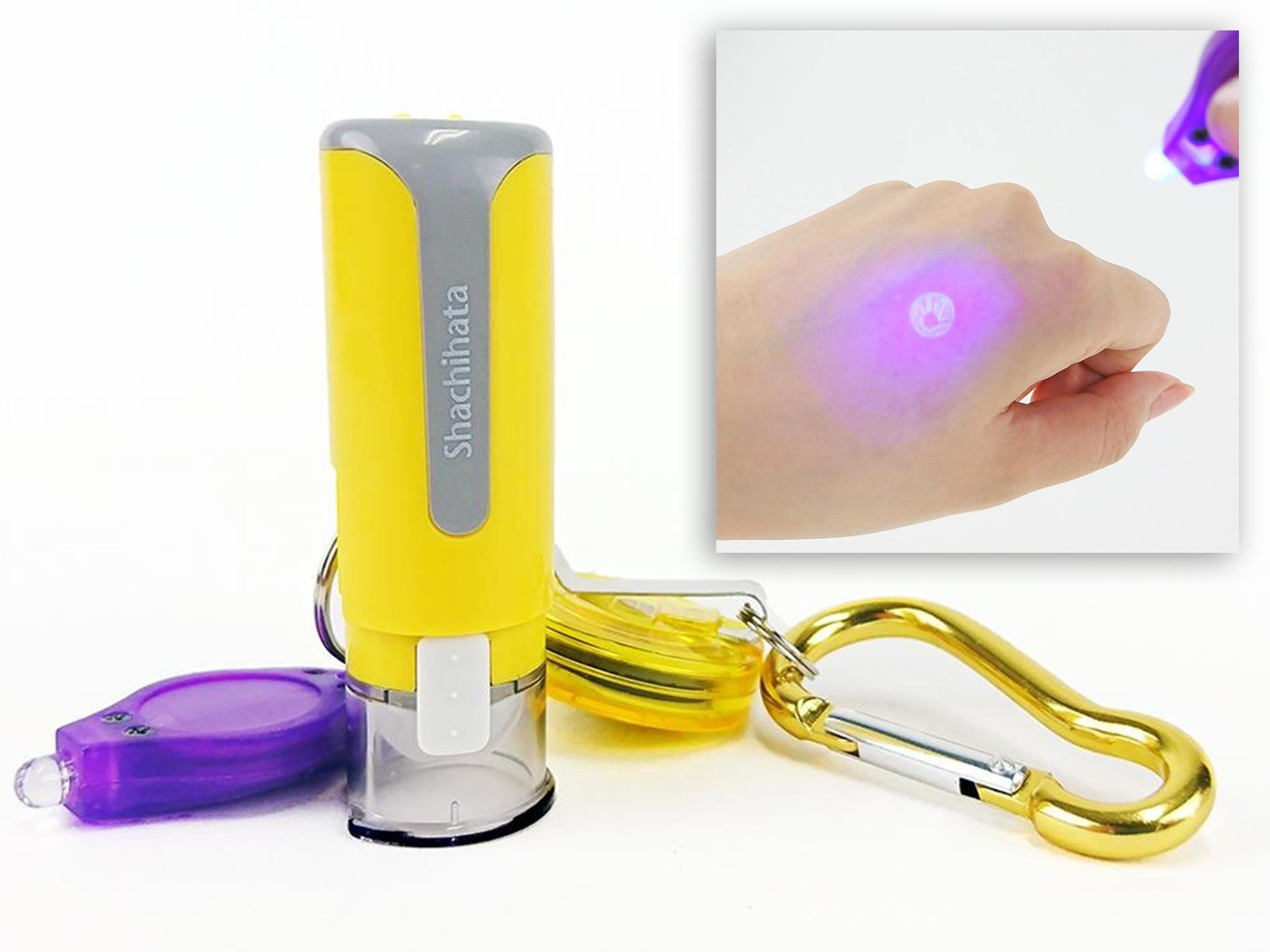‘Anti-groping’ device that marks attackers with invisible ink sells out within 30 minutes in Japan
Stamps allow those who experience harassment to imprint their attackers with invisible ink and also provide a deterrent to would-be attackers

Your support helps us to tell the story
From reproductive rights to climate change to Big Tech, The Independent is on the ground when the story is developing. Whether it's investigating the financials of Elon Musk's pro-Trump PAC or producing our latest documentary, 'The A Word', which shines a light on the American women fighting for reproductive rights, we know how important it is to parse out the facts from the messaging.
At such a critical moment in US history, we need reporters on the ground. Your donation allows us to keep sending journalists to speak to both sides of the story.
The Independent is trusted by Americans across the entire political spectrum. And unlike many other quality news outlets, we choose not to lock Americans out of our reporting and analysis with paywalls. We believe quality journalism should be available to everyone, paid for by those who can afford it.
Your support makes all the difference.A new gadget designed to tackle sexual harassment on public transport has sold out just half an hour after going on sale in Japan.
The “anti-groping” stamps allow those who experience harassment to imprint their attackers with invisible ink and also provide a deterrent to would-be attackers.
Police are then able to reveal the stamp – which was created by stamp-maker Shachihata – with UV light.
A limited run of 500 stamps, which cost 2,500 yen (about £19), sold out within 30 minutes of going on sale on Tuesday.
Shachihata said it would develop the stamp in May after conversations erupted on social media sites about how to deter groping – which is known as chikan – on crowded trains.
The Tokyo Metropolitan Police Department recorded 1,750 cases of groping or molestation in 2017 – with more than 50 per cent of sexual harassment cases taking place on trains and a further 20 per cent in train stations.
The issue of sexual harassment is prevalent in Japan. A recent Nikkei survey of 1,000 working women found 43 per cent had experienced sexual harassment and more than 60 per cent did not report it, with some reports suggesting that more than 75 per cent of all Japanese women have been groped.
Only 3 per cent of sexual assault victims in Japan tell police, often due to fears of being blamed themselves and publicly shamed – with many choosing not to tell anyone at all. A report last year by the government’s gender equality bureau showed nearly 60 per cent of female victims of rape kept it to themselves.
Japan has recently found itself in the public eye for failing to recognise gender equality in the wake of the global #MeToo movement.
Japan ranks bottom among the G7 countries for gender equality. It is ranked 110th out of 149 countries in the World Economic Forum’s index measuring gender equality.
A number of medical universities in the east Asian country last year admitted to meddling with entrance exam scores to deliberately put female applicants at a disadvantage.
Join our commenting forum
Join thought-provoking conversations, follow other Independent readers and see their replies
Comments